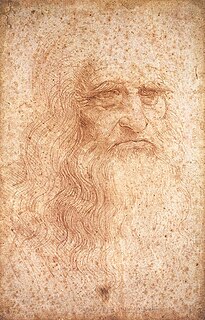This page is based on this
Wikipedia article Text is available under the
CC BY-SA 4.0 license; additional terms may apply.
Images, videos and audio are available under their respective licenses.

Giambattista Vico was an Italian political philosopher and rhetorician, historian and jurist, of the Age of Enlightenment. He criticized the expansion and development of modern rationalism, was an apologist for Classical Antiquity, a precursor of systematic and complex thought, in opposition to Cartesian analysis and other types of reductionism, and was the first expositor of the fundamentals of social science and of semiotics.
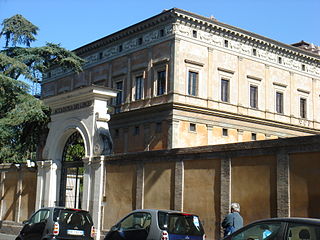
The Accademia dei Lincei is an Italian science academy, located at the Palazzo Corsini on the Via della Lungara in Rome, Italy.

Magia Naturalis is a work of popular science by Giambattista della Porta first published in Naples in 1558. Its popularity ensured it was republished in five Latin editions within ten years, with translations into Italian (1560), French, (1565) Dutch (1566) and English (1658) printed.
The year 1610 in science and technology involved some significant events.
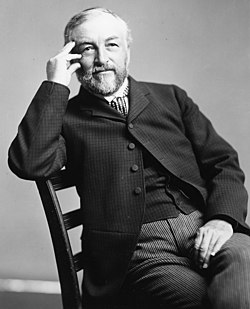
The Henry Draper Medal is awarded every 4 years by the United States National Academy of Sciences "for investigations in astronomical physics". Named after Henry Draper, the medal is awarded with a gift of USD $15,000. The medal was established under the Draper Fund by his widow, Anna Draper, in honor of her husband, and was first awarded in 1886 to Samuel Pierpont Langley "for numerous investigations of a high order of merit in solar physics, and especially in the domain of radiant energy". It has since been awarded 45 times. The medal was most recently awarded in 2013 to William J. Borucki "For his founding concept, unflagging advocacy, and visionary leadership during the development of NASA's Kepler mission, which has uncovered myriad planets and solar systems with unforeseen and surprising properties.".

Giambattista Basile was an Italian poet, courtier, and fairy tale collector. His collections include the oldest recorded forms of many well-known European fairy tales.

Frederic Ward Putnam was an American anthropologist.
Alessio Piemontese, also known under his Latinized name of Alexius Pedemontanus, was the pseudonym of a 16th-century Italian physician, alchemist, and author of the immensely popular book, The Secrets of Alexis of Piedmont. His book was published in more than a hundred editions and was still being reprinted in the 1790s. The work was translated into Latin, German, English, Spanish, French, and Polish. The work unleashed a torrent of 'books of secrets' that continued to be published down through the eighteenth century.

Vico Equense is a coastal town and comune in the Metropolitan City of Naples, in southern Italy.
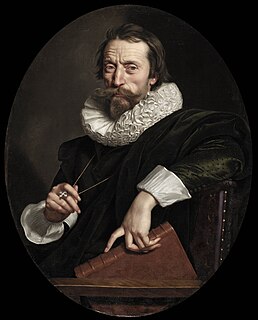
Giambattista Marino was an Italian poet who was born in Naples. He is most famous for his long epic L'Adone.
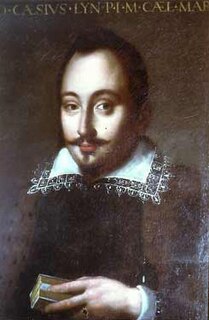
Federico Angelo Cesi was an Italian scientist, naturalist, and founder of the Accademia dei Lincei. On his father's death in 1630, he became briefly lord of Acquasparta.

The Yorkshire Philosophical Society (YPS) is a charitable learned society which aims to promote the public understanding of the natural sciences, the social sciences, and the archaeology and history of York and Yorkshire.

Pasquale Galasso is a former boss of the Galasso clan, a clan of the Camorra, the Neapolitan crime organization. Since August 1992, he has been a pentito, collaborating with the Italian justice. He revealed many intricate secrets about the Camorra. This led to revelations from other pentiti allowing an insight into the Camorra from the insider's point of view.
Hans Lenk is a German rower who competed for the United Team of Germany in the 1960 Summer Olympics, and an Emeritus Professor of Philosophy. He was born in Berlin.
The year 1560 in science and technology included a number of events, some of which are listed here.

Fabio Colonna was an Italian naturalist and botanist.
The year 1558 in science and technology included a number of events, some of which are listed here.
David Rowland was a Welsh author, best known as the translator of Lazarillo de Tormes.



